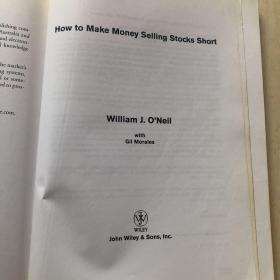How to Make Money Selling BBQ: A Detailed Guide
Are you a BBQ enthusiast looking to turn your passion into a profitable business? Selling BBQ can be a rewarding venture if done right. Whether you’re aiming to start a small food truck, open a restaurant, or simply sell BBQ at local events, this guide will provide you with the essential steps and tips to make money selling BBQ.
Understanding the Market

Before diving into the business of selling BBQ, it’s crucial to understand the market you’re targeting. Research the local competition, identify your target audience, and analyze their preferences. Here are some key points to consider:
-
Identify your niche: Decide whether you want to focus on traditional BBQ, gourmet BBQ, or a specific type of BBQ, such as Texas-style or Kansas City-style.
-
Understand your competition: Analyze the strengths and weaknesses of local BBQ businesses to find a unique selling proposition.
-
Know your audience: Determine the demographics of your target audience, including age, income, and preferences.
Creating a Business Plan

A well-thought-out business plan is essential for any successful venture. It will help you stay organized, secure funding, and make informed decisions. Here’s what to include in your BBQ business plan:
-
Executive summary: Provide an overview of your business, including your mission, vision, and goals.
-
Company description: Explain the nature of your BBQ business, your products, and services.
-
Market analysis: Detail the market research you’ve conducted, including your target audience and competition.
-
Organization and management: Describe your business structure, including ownership, management, and staff.
-
Marketing and sales strategy: Outline your marketing plan, including pricing, promotions, and distribution channels.
-
Financial projections: Provide a financial forecast, including startup costs, revenue projections, and profit margins.
Securing Funding

Starting a BBQ business requires capital. Here are some options to secure funding:
-
Personal savings: Use your own funds to start the business.
-
Loans: Apply for a small business loan from a bank or credit union.
-
Grants: Research grants available for food businesses or BBQ-specific grants.
-
Investors: Seek investors who are interested in the food industry or BBQ market.
Setting Up Your Operation
Once you have funding, it’s time to set up your BBQ operation. Here are the key components to consider:
-
Location: Choose a location that is easily accessible to your target audience, such as a food truck, festival, or event venue.
-
Equipment: Invest in high-quality BBQ equipment, including a grill, smokers, and utensils.
-
Supplies: Purchase the necessary ingredients, spices, and packaging materials.
-
Permits and licenses: Obtain the required permits and licenses to operate your BBQ business.
Developing Your Menu
Your menu is the heart of your BBQ business. Here are some tips for creating a compelling menu:
-
Offer a variety of options: Include different types of meats, sides, and desserts to cater to a wide range of tastes.
-
Highlight your specialties: Showcase your unique BBQ techniques or recipes that set you apart from the competition.
-
Consider dietary restrictions: Offer vegetarian or gluten-free options to cater to a broader audience.
Marketing and Promotions
Marketing and promotions are crucial for attracting customers and building brand awareness. Here are some effective strategies:
-
Social media: Utilize platforms like Instagram, Facebook, and Twitter to showcase your BBQ creations and engage with customers.
-
Local events: Participate in local events, festivals, and food fairs to increase visibility and attract new customers.
-
Referral program: Encourage customers to refer




